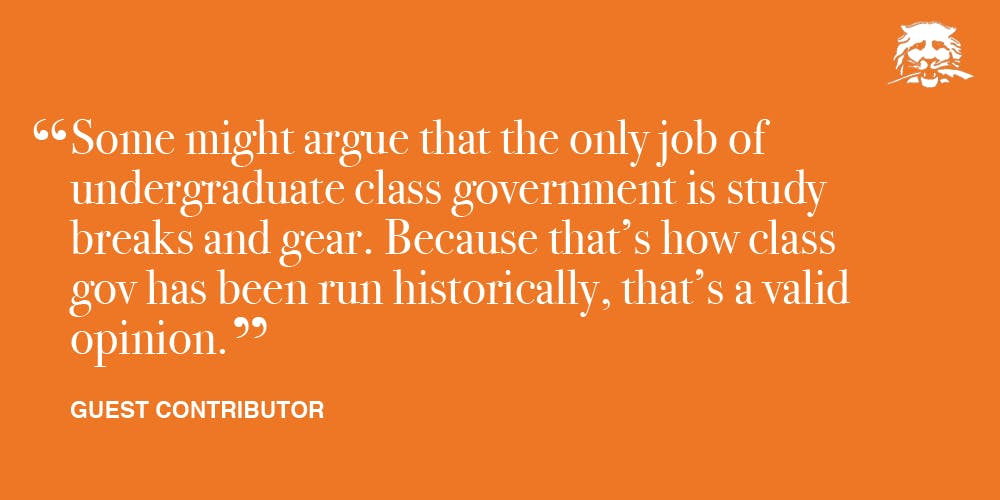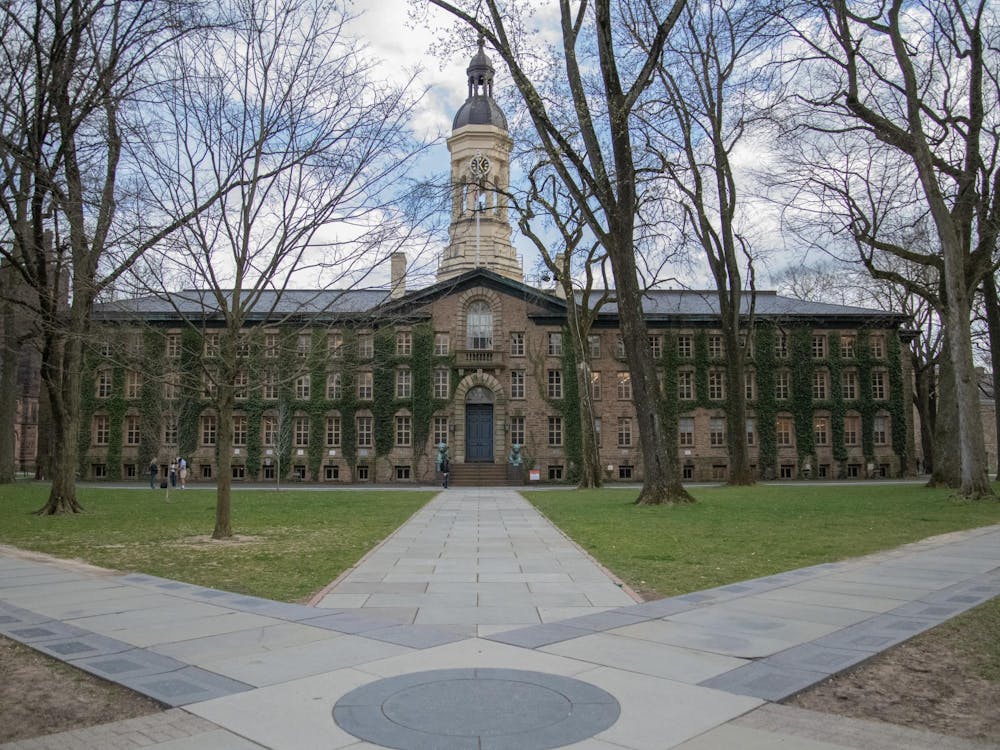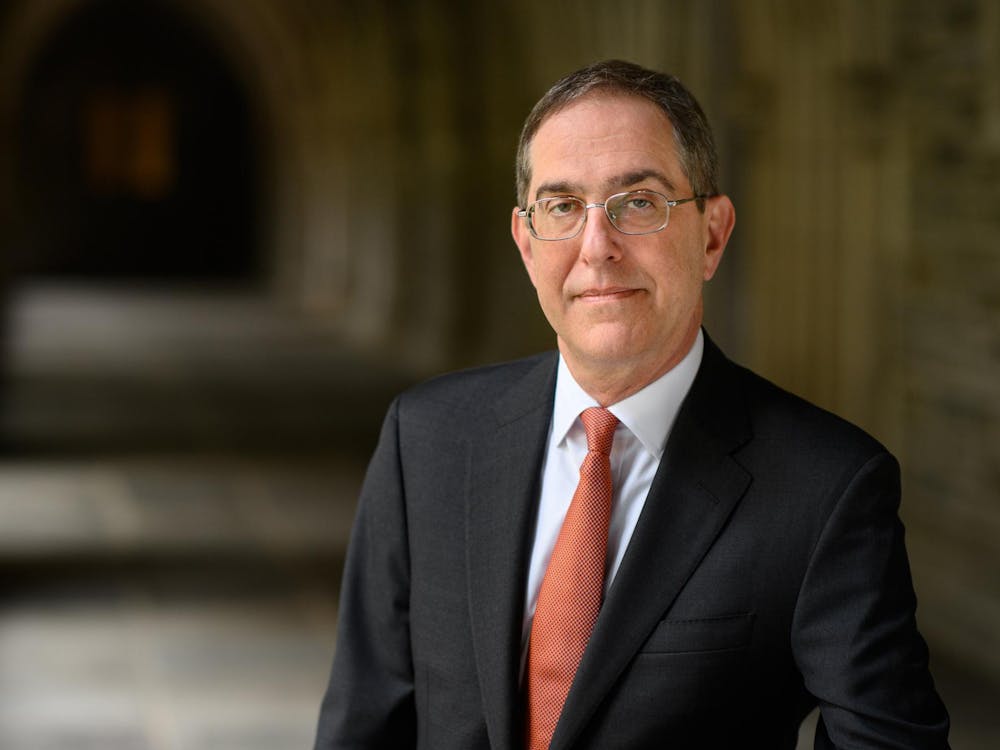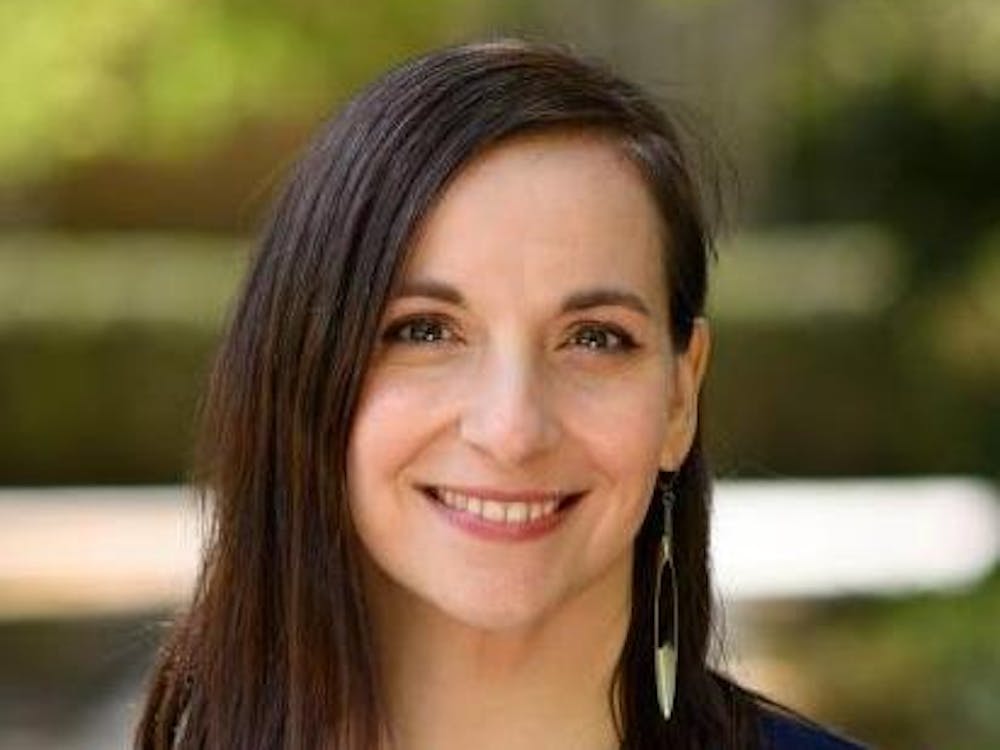Almost two weeks after I lost the election for freshman class president in a close final runoff where 40 votes could have swayed the outcome in my favor, I took some time reflecting on the reasons for my loss and the interesting phenomenon of Princeton elections.
I understand some of you might take this article as me being a “sore loser” having a hard time to move on, but I want to sincerely express that that’s not where I’m coming from. My opponent Emma Parish is a nice, approachable person who has devoted so much time to USG in the past year. She has run a very effective campaign conveying her ideas, and I believe her win is well deserved. This article is by no means trying to delegitimize Emma’s campaign.
I joined the race fully prepared to lose, only hoping to propose changes and bring awareness to the class government system. Having done a lot of reflection on this campaign, I realize that there are issues we can address as a community to help create better elections in the future.
Inside the USG office space in Frist 204 where access is only granted to a few class officers, heated debates take place all the time regarding which food to order for the next study break … Seriously? We’re the class government of Princeton University with an annual budget of tens of thousands of dollars, and all we debate about is food?
While study breaks and gear are in high demand, we need to look beyond our typical missions to address issues from more fundamental levels, because let’s be real – bubble tea and quarter zips don’t bring a class together or create class unity.
Some might argue that the only job of undergraduate class government is study breaks and gear. Because that’s how class gov has been run historically, that’s a valid opinion.
There is a long-standing discussion in class government meetings that students can’t tell the difference between “USG” and “class gov.” Class gov is the five officers from each class whose jobs focus on their class alone, whereas the broader “USG” Senate involves in policy discussion like mental health programs and school-wide activity planning like Lawnparties. Class gov officers are always frustrated that they’re blamed for the Senate’s mistakes or asked about policy-related questions — often responding with “that’s not our job!” But should it be our job?
During my campaign, a few students reached out to me asking me how I would address the dire living conditions and deteriorating infrastructure in Campbell Hall. I realized at that moment that when students want to voice any opinion about the school, they go to their class officers — these are the USG people they elected and feel comfortable talking to, not the Senate subcommittee chairs that they barely know of. This is how Princeton students think and act, and to expect them to “direct their concerns to the correct people” is bureaucratic and irresponsible. Class gov is often the first and only contact students have. In this position, class gov officers should bravely take on more responsibility to help students, not find excuses to maintain its limited role to curating study breaks and gear.
A debate sprang up during this election on whether my ideas of working with eating clubs and opening up class gov for more student participation are “constitutional.” No part of the Class Government Constitution dictates that class gov is forbidden to build partnerships with other organizations. It only seems “unconstitutional” to propose new ideas because they break precedents.
From this election, I saw the difficulty in bringing about any change in a system. Princeton teaches me to think out of the box and uphold a strong sense of social responsibility, but the class government system has also shown how much pushback one can face when trying to effect changes in a community.
I understand that in every political election, rumor exists in one form or another, and I have no intention in criticizing such the objectivity of their existence. But I was still surprised by rumors’ far-reaching effects when some people told me that they wouldn’t vote for me simply because “Tiger’s responsible for our class quarter zip arriving two months late,” which is even admitted by my opponent as a false claim.
Have these rumors possibly cost me some votes? Yes. But my opponents are also hurt by them. The damaging effect of rumors is that they exist on all sides of an election — they polarize candidates, distract voters from focusing on real issues, and make every candidate come out of the campaign limping.

I told my close friends during the campaign that rumors are hurting all candidates, and my friends indicated that there’s nothing I can do: “You can’t prevent people from spreading rumors about you or the others, Tiger. It’s politics.”
Sure, rumors and dirty tricks might exist in real-world politics, but they don’t define what politics is, and in no case should we feel justified to spread rumors or condone the dissemination of disinformation simply because “it’s just what politics is.” The fact that political processes and systems have flaws only makes it more imperative for us, as Princeton students, to seek ways to create a sensible discourse, a noble road, and a solution for our society’s dilemma. Idealistic perhaps, but why not dream bold when at Princeton?
After the election, I talked to ODUS about the possibility of setting up a third-party website in future elections where students can access and compare candidates’ platforms. Because there lacks a centralized system or voice of authority that can show students what each candidate actually proposes, students have a hard time finding out each candidate’s real ideas, and it becomes easier for rumors to dominate an election. My idea of a centralized website with candidate platforms might be a far stretch, but I have faith that someone in the future will come up with a solution to address the issue of rumor, which will surely benefit all candidates and create healthier elections.
There are ideas we can bring to the table and meaningful discussions we can make people more aware of through this election. Instead, we often cast a vote based on some gossip news or emotional statement we overheard at late meal. Why? Because there’s a sense of apathy deeply rooted in Princeton’s culture — that people don’t really care about student government elections or pretty much any extracurricular activity outside their circles. I felt nervous every day when I went around campaigning, because I know what I say to people isn’t really what they care about or want to spend time listening to.
How do we get more people to pay attention about the work being done by class governments? I think it goes back to my previous claim that we need to diversify our ideas and expand on the issues we address. When class government is defined by study breaks and gear, it’s hard to get people to think that an election would have any impact on their lives. When we bring more changes to class government’s role at a fundamental level, I have faith that students will be less apathetic.
All this being said, I want to congratulate Emma again and wish her and the other officers the best for the upcoming year. People have always considered USG elections as popularity contests, but I’m extremely glad to see popularity playing a diminishing role in this election and that so many voted based on the weight of ideas. Our class has yielded historic turnouts for this election, and as more students begin to pay attention to actual ideas, I have faith that changes in student government will happen soon — if not in my time, I’ve at least pushed the dialogue a bit further.
Tiger Gao is a first-year from Beijing, China. He can be reached at miaokuan@princeton.edu.









